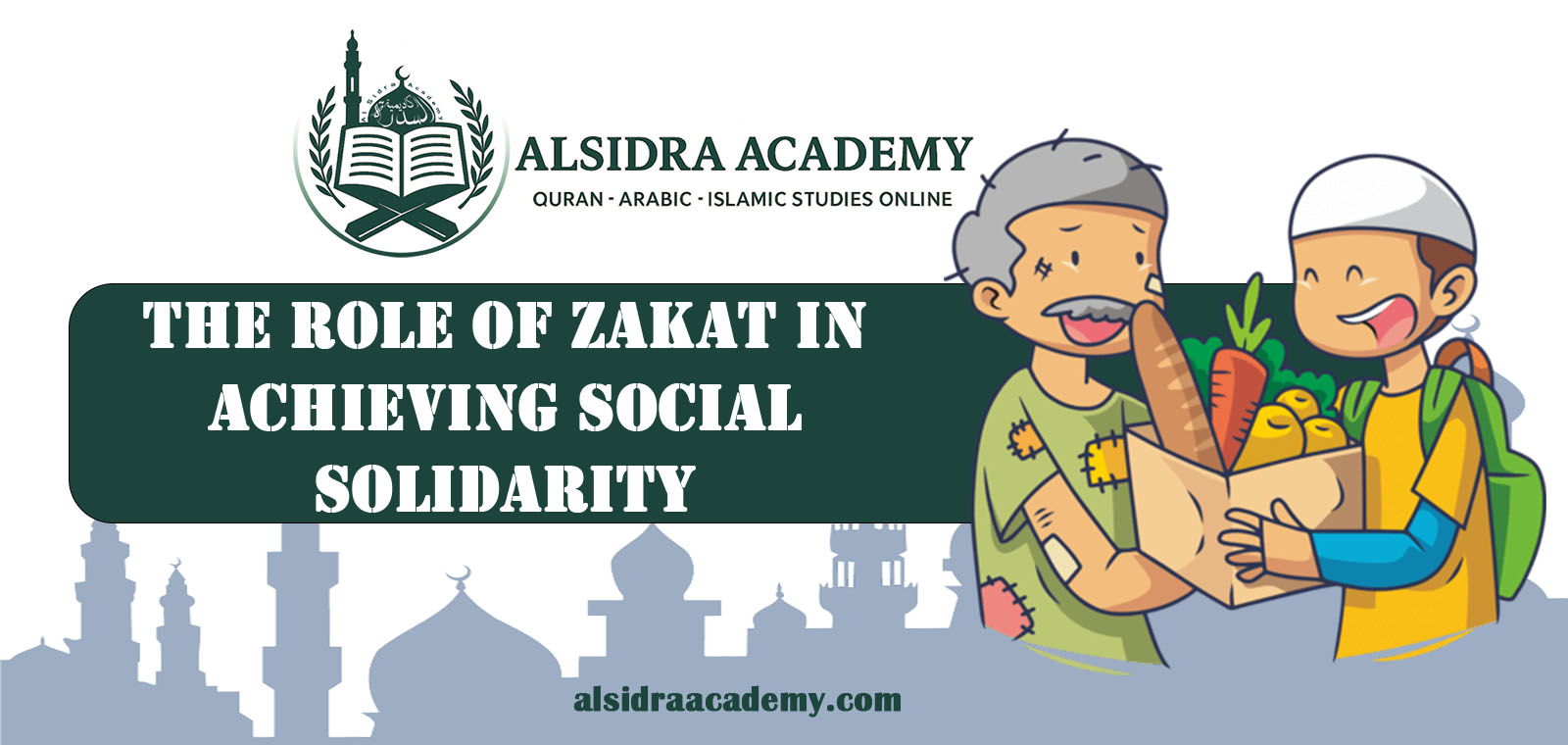
Zakat is one of the most important pillars of Islam that significantly contributes to achieving social solidarity among individuals in society. It is not just a financial act of worship, but an essential tool in promoting social justice and reducing economic disparities among different social classes. In this article, we will explore the role of zakat in fostering social solidarity and how it contributes to building a balanced and strong society.
1. Definition of Zakat and Its Importance in Islam
Zakat is one of the five pillars of Islam and is an obligatory act of charity where Muslims are required to give a portion of their wealth if they possess a certain amount of savings. The zakat rate is 2.5% of the wealth held for one full lunar year. Allah, the Almighty, ordained zakat not only to purify wealth but also to achieve social balance and strengthen the bonds between individuals in society. As mentioned in the Quran: “Take from their wealth a charity to purify them and sanctify them” (At-Tawbah: 103).
2. The Role of Zakat in Reducing Poverty
Poverty is one of the major challenges faced by many societies. Zakat plays a crucial role in alleviating poverty by directing wealth to the most vulnerable groups such as the poor and the needy. Through zakat, funds are gathered and distributed to those who need them for their basic needs such as food, clothing, healthcare, and other essentials. This process significantly helps improve the living standards of the poor and provides support for them to overcome life’s challenges.
3. Promoting Social Justice
Zakat helps in achieving social justice through the redistribution of wealth. When funds are collected from the rich and distributed to the poor, a form of social balance occurs, reducing the gap between different social classes. Zakat ensures that every individual in society can live with dignity, as the needy receive the necessary financial assistance to meet their basic needs.
4. Supporting Social Projects
Zakat can also be used to fund social projects that improve the quality of life for the entire community. For example, zakat funds can be allocated for the construction of hospitals, schools, and public facilities that benefit society as a whole. These types of projects strengthen the fabric of the community and promote the principles of cooperation and solidarity among its members.
5. Social Solidarity Among Muslims
Zakat fosters social solidarity among Muslims by creating a sense of mutual responsibility for the welfare of others. Through the act of giving zakat, individuals recognize their responsibility to help the less fortunate. This process encourages communication between the rich and the poor, promoting feelings of equality and justice. Zakat helps eliminate feelings of resentment and hatred that may arise due to the vast economic disparities between classes. When the wealthy realize that their wealth is not solely for their benefit but also a trust that must be shared with those in need, a culture of mutual support is established.
6. Zakat and Achieving Social Security
Zakat helps achieve social security by providing immediate support to families facing economic difficulties. During times of hardship, natural disasters, or health crises, zakat can be an effective tool for providing emergency relief and assistance. For instance, in the event of a natural disaster or public health crisis, zakat funds can be used to provide aid and support for rebuilding the lives of affected communities. This kind of assistance helps restore the social and economic stability of communities in need.
7. Zakat in Raising Community Awareness
Through zakat, individuals in society learn the value of giving and the importance of helping others. Zakat nurtures a sense of solidarity and instills the spirit of generosity in the community, strengthening social ties and reducing selfishness. When Muslims regularly give zakat, they learn to sacrifice for the greater good, leading to a more cooperative and value-driven society.
8. Zakat as a Tool to Combat Unemployment
Zakat can also be used as a tool to address unemployment in society. By allocating a portion of zakat funds to support small business initiatives or vocational training programs, job opportunities can be created for individuals in need. These projects not only improve the livelihoods of the poor and needy but also enhance social stability by reducing unemployment.
9. Zakat and Maintaining Economic Balance
By redistributing wealth among the poor and needy, zakat helps maintain economic balance in society. It prevents the concentration of wealth in the hands of a few individuals and ensures that wealth circulates more widely within the community. Zakat fosters long-term economic stability by promoting fairness and equitable distribution of resources.
Zakat is not merely a financial act of worship but a fundamental tool in achieving social solidarity. By reducing poverty, promoting social justice, supporting social projects, and fostering solidarity, zakat plays a crucial role in building a balanced and cohesive society. It enhances social solidarity, helps achieve social security, and teaches generosity and mutual support, making zakat an essential pillar in improving the quality of life in the Muslim community.




No comment yet, add your voice below!